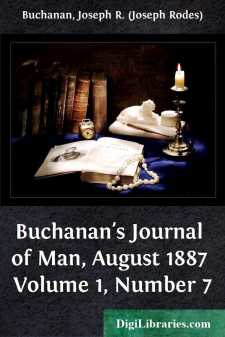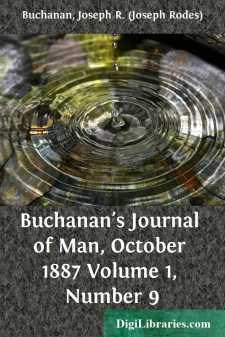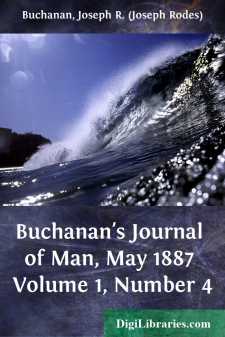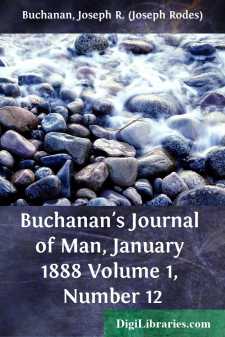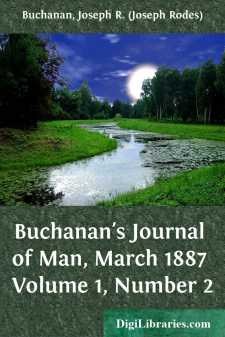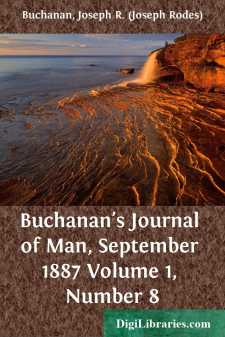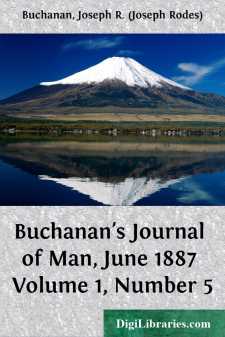Categories
- Antiques & Collectibles 13
- Architecture 36
- Art 48
- Bibles 22
- Biography & Autobiography 813
- Body, Mind & Spirit 142
- Business & Economics 28
- Children's Books 17
- Children's Fiction 14
- Computers 4
- Cooking 94
- Crafts & Hobbies 4
- Drama 346
- Education 46
- Family & Relationships 57
- Fiction 11829
- Games 19
- Gardening 17
- Health & Fitness 34
- History 1377
- House & Home 1
- Humor 147
- Juvenile Fiction 1873
- Juvenile Nonfiction 202
- Language Arts & Disciplines 88
- Law 16
- Literary Collections 686
- Literary Criticism 179
- Mathematics 13
- Medical 41
- Music 40
- Nature 179
- Non-Classifiable 1768
- Performing Arts 7
- Periodicals 1453
- Philosophy 64
- Photography 2
- Poetry 896
- Political Science 203
- Psychology 42
- Reference 154
- Religion 513
- Science 126
- Self-Help 84
- Social Science 81
- Sports & Recreation 34
- Study Aids 3
- Technology & Engineering 59
- Transportation 23
- Travel 463
- True Crime 29
Buchanan's Journal of Man, February 1887 Volume 1, Number 1
Categories:
Description:
Excerpt
Published from 1849 to 1856 at Cincinnati, is to be re-established at Boston in February, 1887. When published formerly it was in its character and merits entirely unique, and, notwithstanding the progress of thirty-five years, its position is still unique, and in its essential characteristics different from all nineteenth century literature, and not in competition with any other publication. It was needed in 1849, and it is still more needed now. It represents an entirely new school of thought, based upon the establishment of the new science of , which is a revelation of the anatomical, physiological, and psychic union of soul, brain, and body, and a complete portrait of man and the laws of his life, from which arise many forms of psychological, ethical, physiological, pathological, and therapeutic science, all of which are eminently practical and philanthropic in their results.
One of these applications has been given in the volume entitled, “The New Education,” of which Edward Howland says, “Its results cannot fail of being of even more influence upon the culture and the virtue of society than the introduction of steam into industrial methods has had in the distribution of the products of skilled labor.”*
*Rev. B. F. BARRETT, one of the most eminent writers of his church, says:
“We are perfectly charmed with your book. I regard it by far as the most valuable work on education ever published. You have herein formulated the very wisdom of heaven on the highest and most momentous of all themes. Your work is destined, in my judgment, to inaugurate a new era in popular education. It contains more and higher wisdom on the subject of which it treats than all the other books ever written on education.”
To watch and to assist the progress of humanity has been the pleasure of the editor for half a century, and it will be the task of the “Journal of Man,” as far as practicable, to present a periscope of progress in all that interests the philanthropist. Almost innumerable questions are arising concerning human rights, opinions, and interests, such as, the new education, the new theology, theosophy, occultism, spiritualism, materialism, agnosticism, evolution, paleontology, ethnology, ancient religions, systems of ethics, sociology, political economy, labor and wages, co-operation, socialism, woman’s progress and rights, intemperance and social evils of every grade, modern literature, the philosophy of art and oratory, revolutions in medicine, sanitary and hygienic science, democracy, public men and women, prison reform, the land question, and questions of war or peace, and national policy; upon all of which the “Journal of Man” must necessarily occupy an independent position, and present peculiar views, in the light of the new sciences of which it is the exponent,—views not derived from the past, not in harmony with the orthodox literature of the day, nor tinged by any credulous fanaticism, but resulting from a half century of earnest and scientific search for truth.
Another important function for a philanthropic and progressive journal is to assist in the diffusion of liberal literature, and to keep an eye upon the prolific press of to-day, for the benefit of its readers, calling their attention to the meritorious works, which are often neglected, and warning against pretentious folly and sciolism. But it is not supposed that the programme of the Journal can be fully carried out until the completion of certain works now in hand will permit its enlargement.
The existence and diffusion of such a science as psychometry—“the dawn of a new civilization,” as it is considered by its adepts and its friends,—is alone an imperative demand for a journal to assist the diffusion and illustration of a science, which no honorable and logical thinker, after accepting its well-established facts, can regard as anything less than the beginning of an intellectual revolution, the magnitude of which is astounding to a conservative mind; for the revolutionary science of the last forty years has been concealed from the conservative majority, by its exclusion from the press and from the college....



